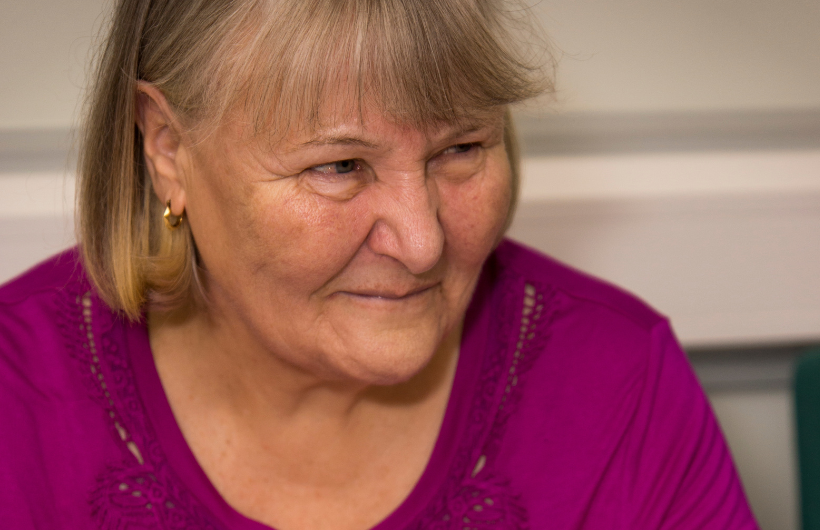
Linda feared being confined to a wheelchair
Member, Linda from Cheshire, was diagnosed in 1993, aged 45, with Paget’s disease in her skull, spine and right hip. Here she reflects on her experience.
Turning 70, last May, was a huge occasion for me. As well as a ‘big’ birthday, it marked 25 years, since I was diagnosed with Paget’s disease. I had initially expected to be in a wheelchair, long before being 70. The reason I am still standing is the excellent care, prompt diagnosis and treatment that I received from my GP and the Paget’s specialist at the Manchester Royal Infirmary (MRI).
In 1966, I went to train as a children’s nurse at Booth Hall Hospital and in my second year, as part of the training, we had to spend a week with a midwife and then a district nurse. Whilst a lady, who was confined to a wheelchair. She talked about her ‘chalky’ bones that ‘snapped’ when she turned over in bed. It turned out that she had Paget’s disease and unfortunately the treatments that I have received were not available then. The lady endured many unwelcome effects of Paget’s disease and was offered nothing but pain killers and visits from the nurses to help her. Paget’s disease isn’t common in children, so seeing this patient with the district nurse came back to me years later when I went to my GP with back and hip pain.
Following an x-ray, she told me I had Paget’s disease. I immediately visualised myself in a wheelchair as the patient that I had visited had been.
Luckily, my sensible GP arranged for me to be referred to MRI, where I saw a specialist who was knowledgeable in the disease. I realise that, even now, many people are not as lucky as I was. Many struggle to obtain a diagnosis
and to get the referral they need, to someone who understands the condition. Fortunately, I had a bone scan, treatment, and was back at work within six months, not cured from Paget’s but with it in remission.
I was treated with pamidronate and then later, when zoledronic acid became available, I was given that, and I still have this whenever the pain starts. It works for me!
Having remembered the patient with Paget’s, I vaguely knew what it was but from the GP’s surgery I went to the local library, just to check in the medical dictionary. In that dictionary was the address of the Paget’s Association. The rest is history. I have been supported by the Association for the last 26 years, attending three-monthly support group meetings and I feel lucky to have the support they provide. In addition, as the search has developed into the causes of Paget’s disease, and as I am positive for one of the genes that made me susceptible to it, over the years my family (2 sons, 5 brothers and sisters) have taken part in research, such as the Zoledronate in the Prevention of Paget’s (ZiPP) trial. Fortunately, they are all free from the genetic disposition, but I wish to thank them for their part in the research.
I wanted to share my story to show that living with Paget’s is manageable, it just may need a bit of adjustment.
In this video below, Linda discusses her experience of treatment with Professor Stuart Ralston.

